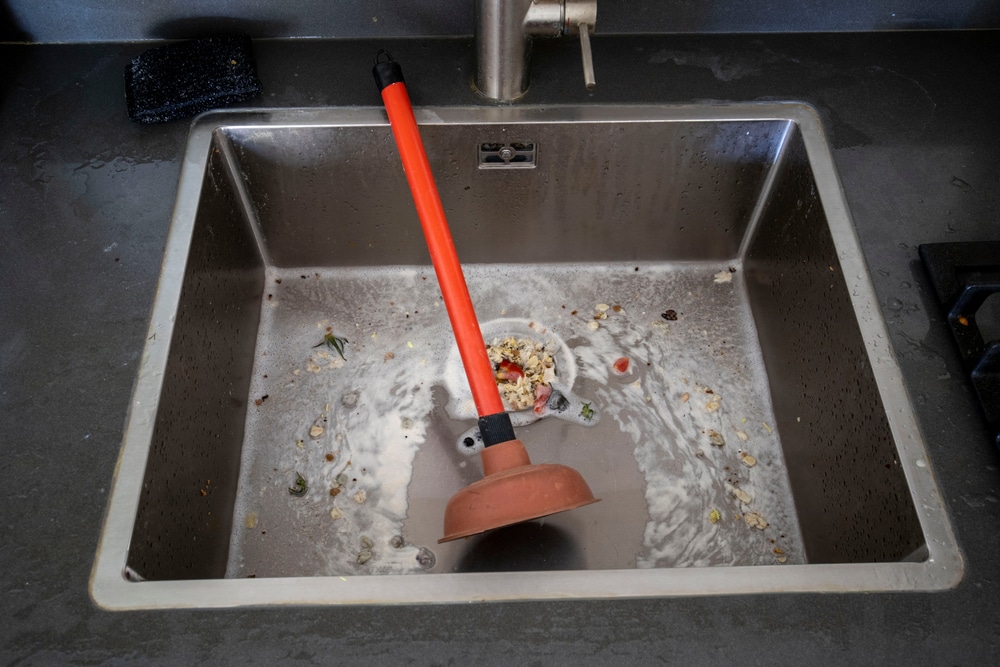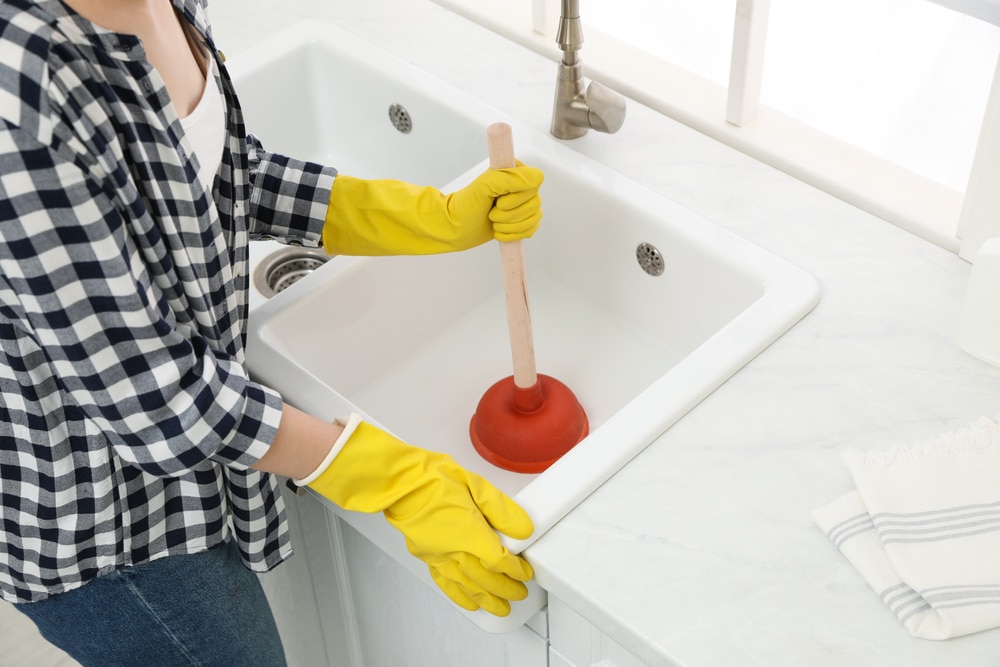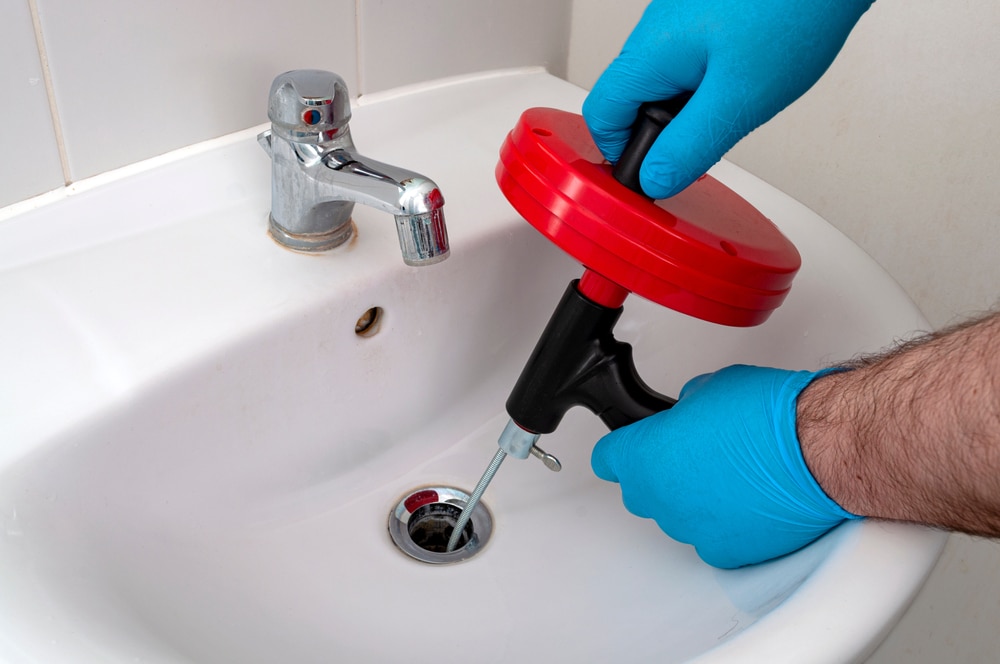A clogged drain can be a major inconvenience and lead to expensive repairs if not addressed promptly. Understanding the common causes of clogged drains can help you prevent them from occurring and take appropriate action when they do. In this comprehensive guide, we will explore the most common causes of clogged drains and provide practical solutions to keep your plumbing system running smoothly.
1. Fat, Oil, and Grease (F.O.G.)
Fat, oil, and grease are notorious for causing clogged drains. When these substances cool down and solidify, they create stubborn blockages that can damage pipes, cause leaks, and lead to flooding.
How to Prevent F.O.G. Clogs
The best way to prevent clogs from fat, oil, or grease is by never pouring them down your drain. Instead, pour the byproducts into an empty container, like a coffee can, and dispose of them properly once they solidify. Additionally, use a paper towel to soak up any excess F.O.G. from pots and pans before rinsing them off.
2. Hair and Animal Fur
Hair and animal fur are common culprits for clogging drains, particularly in showers and bathtubs. Loose hair and fur can combine with soap scum and other debris, forming thick, persistent clogs in pipes.
How to Prevent Hair Clogs
One effective way to reduce hair clogs is to use a drain screen or mesh trap in your shower or bathtub. This will catch most hair and prevent it from entering your pipes. Regular drain cleaning services from a professional plumber can also help keep your pipes clear and healthy.
3. Soap Scum
Soap scum is another common cause of clogged drains. As soap residue accumulates in your pipes, it can mix with hair, minerals, and other debris, creating a stubborn clog.
How to Prevent Soap Scum Clogs
To prevent soap scum clogs, consider using liquid soaps or soap-free washes, as they are less likely to leave residue in your pipes. Additionally, regular drain cleaning and maintenance can help remove soap scum buildup and keep your drains clear.
4. Food Waste
Food waste is a leading cause of clogged kitchen sinks and garbage disposals. Even with a garbage disposal, certain types of food waste, such as eggshells, tea leaves, and coffee grounds, can solidify and block pipes.
How to Prevent Food Waste Clogs
To avoid food waste clogs, scrape leftover food into the trash bin before rinsing dishes and avoid putting problematic foods down the disposal. Using a sink strainer or drain cover can also help keep food scraps from entering the drain.
5. Mineral Buildup
Hard water contains minerals that can accumulate in your pipes, leading to clogs and reduced water flow. Over time, mineral deposits can block drains and damage your plumbing system.
How to Prevent Mineral Buildup Clogs
Installing a water softener can help reduce mineral buildup in your pipes, extending their lifespan and preventing clogs. Regular professional drain cleaning and descaling can also help remove mineral deposits and keep your plumbing system in good condition.
6. Paper Products and Wipes
Toilet paper, tissues, paper towels, and wipes can all cause clogs when flushed down the toilet. These products can absorb water and expand, leading to blockages in your pipes.
How to Prevent Paper Product Clogs
The best way to prevent paper product clogs is to dispose of these items in the trash can instead of flushing them down the toilet. If you must flush paper products, do so in moderation and avoid using excessive amounts.
7. Small Objects and Foreign Materials
Children’s toys, cotton swabs, and other small objects can accidentally enter drains and cause blockages. These items should be disposed of in the trash bin to prevent plumbing issues.
How to Prevent Small Object Clogs
To prevent small object clogs, educate your children about proper disposal of items and consider using sink guards in your bathroom and kitchen sinks. If an object becomes lodged in your drain, call a professional plumber for assistance.
8. Tree Roots
Tree roots can infiltrate pipes through tiny cracks, growing inside the pipe and causing clogs, reduced water flow, and even damage to your drainage system.
How to Prevent Tree Root Clogs
Regular inspection and maintenance of your plumbing system can help identify and address tree root clogs before they become serious problems. Additionally, be mindful of where your pipes are located when planting trees and shrubs.
9. Cotton Products
Cotton swabs, diapers, and feminine hygiene products can all cause clogs when flushed down the toilet. These items do not break down easily and can lead to serious plumbing issues.
How to Prevent Cotton Product Clogs
Dispose of cotton products in the trash bin rather than flushing them down the toilet. If a clog does occur, contact a professional plumber for assistance.
10. Dirt and Debris
Excessive dirt and debris can build up in your pipes and cause clogs. This can occur if you wash off large amounts of mud or dirt in your sink or shower, or if small pebbles and other debris enter your pipes.
How to Prevent Dirt and Debris Clogs
Remove as much dirt and debris from your clothes, body, and other items before rinsing them in your sink or shower. Regular drain cleaning services can also help keep your pipes clear of clogs caused by dirt and debris.
Professional Drain Cleaning Services
If you’re experiencing persistent clogged drains or want to prevent future clogs, consider enlisting the help of a professional plumber for regular drain cleaning and maintenance. Professional drain cleaning services can help identify and address clogs, remove mineral buildup, and ensure the overall health of your plumbing system. Investing in regular drain cleaning can save you time, money, and frustration in the long run.















